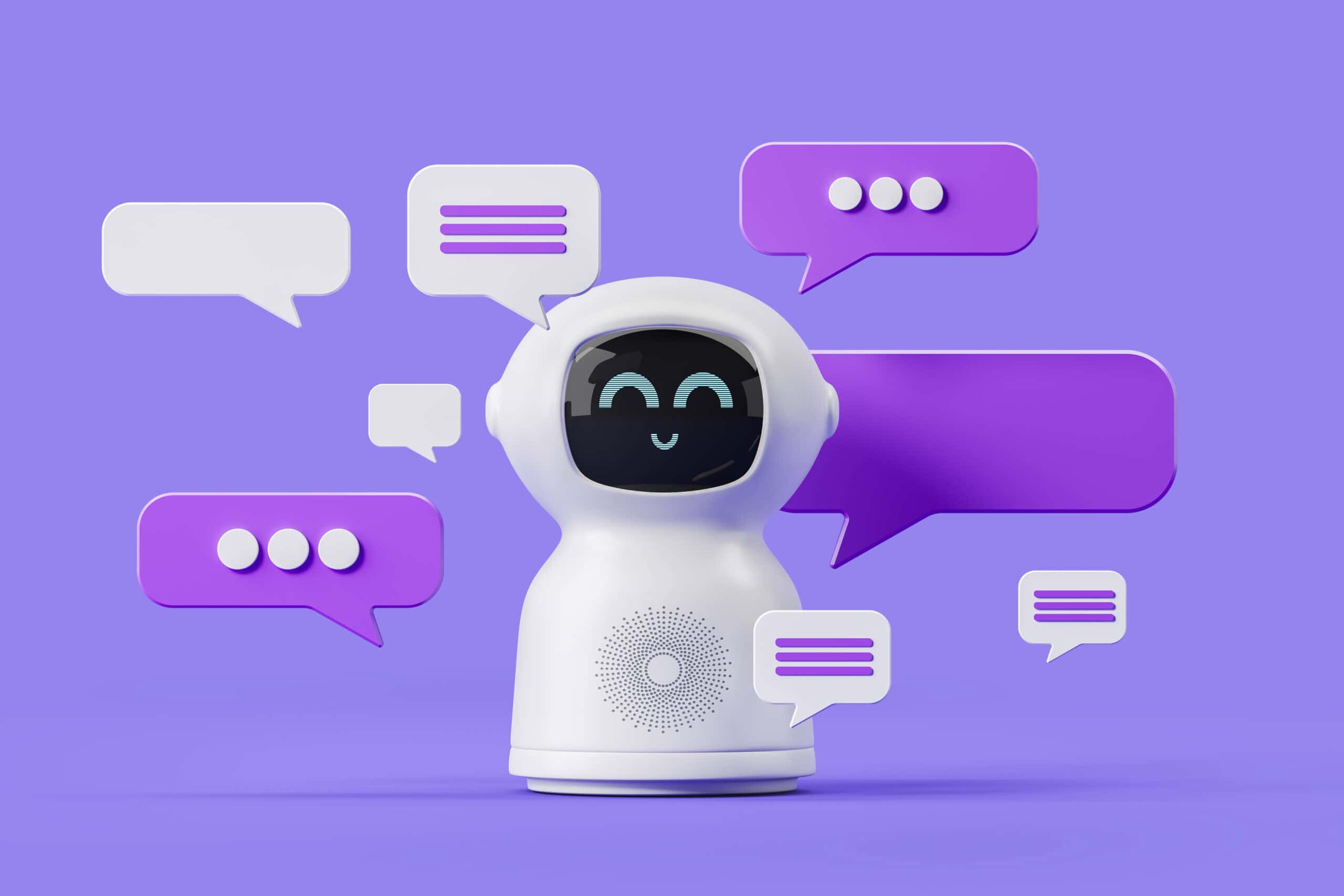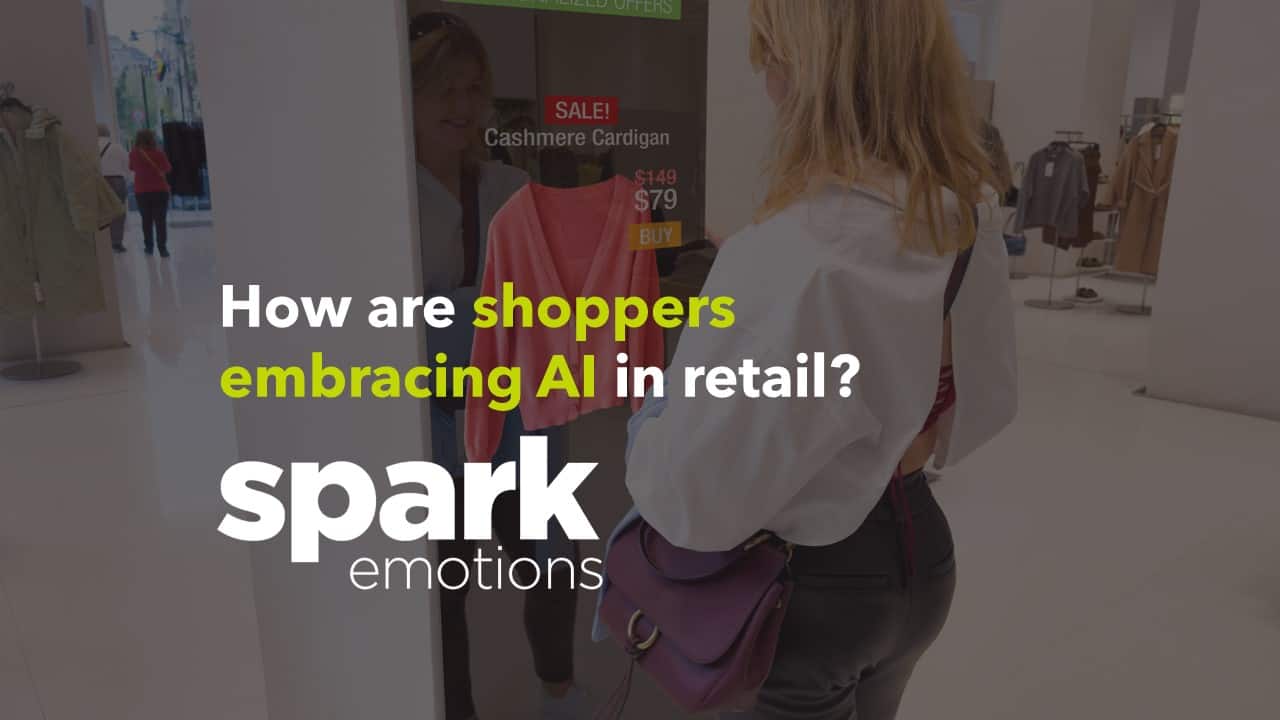Love it or hate it, the rise and impact of AI (Artificial Intelligence) in the modern world is unavoidable. And it’s not all negative. From recommending TV shows to suggesting who an unknown caller might be, AI is already benefiting our everyday lives.
These benefits even apply to the world of retail. The shopping industry has long embraced technology like machine learning, natural language processing, and other advanced algorithms to analyse data and automate or augment retail operations and experiences.
The importance of AI in retail lies in its ability to make data-driven decisions that can optimise operations, improve customer experiences, and drive sales. Here, we’ll look at some of the key ways shoppers are embracing AI in retail, and the benefits it reaps for consumers.

What is AI’s impact on the retail industry?
AI can help brands and retailers operate more efficiently, reduce costs, and enhance customer experience. As a result, it is increasingly important for them to embrace AI to stay relevant in today’s retail landscape. These are some of the most innovative technologies that many retailers are using right now.
Virtual reality
Many retailers are using virtual reality (VR) technology to provide immersive and interactive shopping experiences for customers. By using VR headsets, customers can virtually try on clothes and accessories, view products in 3D, and even walk through virtual stores. Some retailers also use VR to train employees and visualise store layouts and designs.

Personalisation
AI-powered personalisation algorithms can analyse customer data like purchase history, browsing behaviour, and demographics. It then provides personalised recommendations and promotions tailored to each individual customer, which can help to increase customer loyalty and sales.
Augmented reality
Retailers are using augmented reality (AR) technology to enhance the customer experience and help shoppers visualise products in their own environments. For example, an AR app can help customers see how furniture would look in their home before they buy, what shade of paint would look good on their walls. Or how a pair of glasses or a certain shade of lipstick would look on their face. Many tech retailers are also using AR for virtual product demonstrations and launches.

Chatbots
Chatbots can provide instant, AI-powered customer service and support, answering common questions and resolving issues in real-time. Chatbots use natural language processing and machine learning algorithms to understand customer inquiries and provide accurate and helpful responses.
Retailers can integrate chatbots into their website or social media channels, so customers can access support whenever and wherever they need it. By providing efficient and convenient customer service, chatbots help retailers improve customer satisfaction and loyalty.

Enhancing physical retail with AI
Many physical retail stores are also using AI to enhance customer experiences, optimise operations, and increase sales.
When it comes to checkout, AI can speed up the process by automatically identifying products and processing payments without the need for manual scanning or input.
For retail teams, AI can help optimise staff schedules based on traffic patterns, sales data, and other factors to ensure that the right number of staff are on hand at all times. It can also improve inventory management by tracking product levels in real-time, predicting demand, and identifying which products are selling well and which are not.
Many stores also now opt for AI-powered cameras that can monitor the store for potential theft and other security issues, alerting staff when necessary.

Embracing AI-powered personalisation
AI-driven personalisation is transforming both physical and online retail. For example, 3D sizing machines and scanners are enhancing in-store experiences by allowing shoppers to measure themselves accurately, adding to the interactive retail experience.
AI in market research
In market research, AI is opening new avenues for gaining insights and streamlining processes. AI can prompt survey respondents to provide richer insights, program surveys quickly, and automatically code data, significantly saving researchers’ time. Retailers are exploring how AI can further enhance these capabilities to better understand shopper behaviour and preferences.
Case studies of AI in retail
An example of a retail store that has successfully embraced AI in its physical locations is Lululemon. “The Lululemon Mirror” has been launched in select stores, using computer vision and machine learning algorithms to provide personalised product recommendations and styling advice to customers.
Customers stand in front of the mirror and select their preferred workout activity, products styles, and colours. The mirror then suggests outfits that match these preferences, along with complementary products such as accessories and shoes. The mirror can also recommend sizing based on the customer’s body shape and measurements.

Online retailers using AI
Amazon uses extensive AI to enhance the customer experience and optimise its operations. The “Recommended for You” feature uses AI algorithms to suggest products to customers based on their purchase and browsing history, and reviews and ratings.
AI is also used to optimise Amazon’s supply chain and logistics operations to fulfil orders more efficiently. Its use of AI has enabled the company to deliver a more personalised and efficient shopping experience for customers, while also optimising its operations and increasing sales. As a result, Amazon is a prime example of how AI can drive success in e-commerce.
Optimised search functions help customers find products quickly and easily. These searches and their results inform personalised recommendation engines, further improving the products promoted to each shopper.
Shoppers’ response to AI in retail
Studies have repeatedly shown that shoppers respond positively to AI in retail settings. A Salesforce survey found that 51% of consumers believe AI improves their shopping experience, and 62% said they are open to receiving recommendations from AI-powered personal shopping assistants. Additionally, 59% were comfortable with retailers using their purchase history to personalise their shopping experiences. Another study by Capgemini found that 88% of shoppers report positive experiences with chatbots.
Spark Emotions take on AI in retail
“Here at Spark, we’re seeing an upward trend in the introduction of 3D sizing machines and scanners in-store, which adds to the interactive retail experience and helps to delight shoppers. Supermarkets are adopting digital, real-time shelf monitoring to improve efficiencies and organisation. And let’s not forget about AI in market research – it’s opening up a world of possibilities! AI is lending a hand to market researchers by nudging survey takers for deeper insights, setting up surveys in a flash, and coding data automatically. It’s clear that, slowly but surely, shoppers are embracing AI in retail settings to enhance their experience.” – Evie Harris-Jenkins, Senior Research Executive at Spark Emotion
What does the future of AI in retail look like?
As retailers continue to invest in AI and improve their offerings, consumer acceptance and adoption of AI will continue to grow. The future of AI in retail is looking promising with predictions including hyper-personalisation, enhanced immersive in-store experiences like virtual try-ons and interactive product displays, and improved customer service with chatbots providing faster and more efficient support.

Behind the scenes, retailers will benefit from improved supply chain management that can predict demand, identify bottlenecks, and improve logistics processes, leading to faster delivery times, reduced costs, and increased customer satisfaction. Improved inventory management will also help manage stock levels and reduce waste, leading to more efficient operations, cost savings, and increased profitability for retail brands that embrace AI.
Chat with a member of our friendly team today about your retail strategy. Please get in touch to arrange a call.





